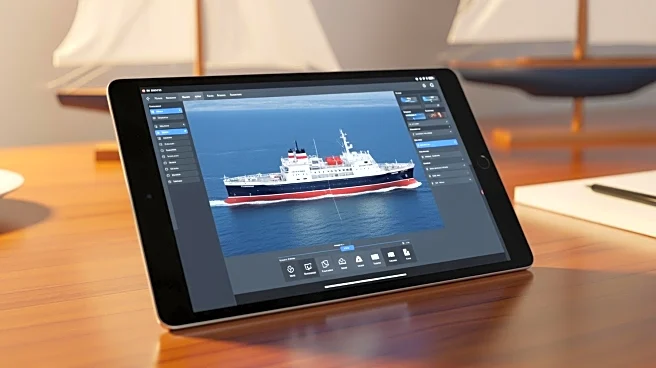What's Happening?
Tidewater has introduced a digital platform, UniSea’s Maindeck app, to streamline the dry-docking process of its vessels, achieving up to a 60% reduction in project time. The platform supply vessel Highland Prestige recently underwent an intermediate
survey at Dales Marine Services in Aberdeen, where the app was utilized. The Maindeck app replaces traditional spreadsheet-heavy workflows with a centralized, real-time management tool, allowing for more efficient planning and execution of dry-docking projects. This digital approach consolidates updates, job tracking, and cost monitoring into one shared platform, significantly reducing administrative tasks and enhancing project management efficiency.
Why It's Important?
The implementation of digital tools like the Maindeck app in the maritime industry represents a significant shift towards more efficient and cost-effective operations. For Tidewater, the reduction in dry-docking time translates to shorter yard stays and quicker vessel reactivation, which is crucial in the competitive offshore energy market. This technological advancement not only improves operational efficiency but also provides real-time visibility on costs and progress, potentially setting a new standard for the industry. Companies that adopt such innovations may gain a competitive edge by reducing downtime and operational costs.
What's Next?
As Tidewater continues to leverage digitalization, other companies in the maritime industry may follow suit, adopting similar technologies to enhance their operational efficiencies. The success of the Maindeck app could lead to broader implementation across Tidewater’s fleet and potentially influence industry-wide practices. Stakeholders, including shipyards and maritime service providers, may need to adapt to these technological changes to remain competitive. Additionally, the increased efficiency could lead to more frequent and timely maintenance, improving overall fleet reliability and safety.
Beyond the Headlines
The shift towards digitalization in vessel management raises questions about the future of labor in the maritime industry. As administrative tasks become automated, there may be a need for workforce reskilling to manage and operate new technologies. Furthermore, the reliance on digital platforms underscores the importance of cybersecurity measures to protect sensitive operational data. The long-term impact of such technological integration could lead to a more sustainable and environmentally friendly maritime industry, as efficient operations often correlate with reduced resource consumption.















